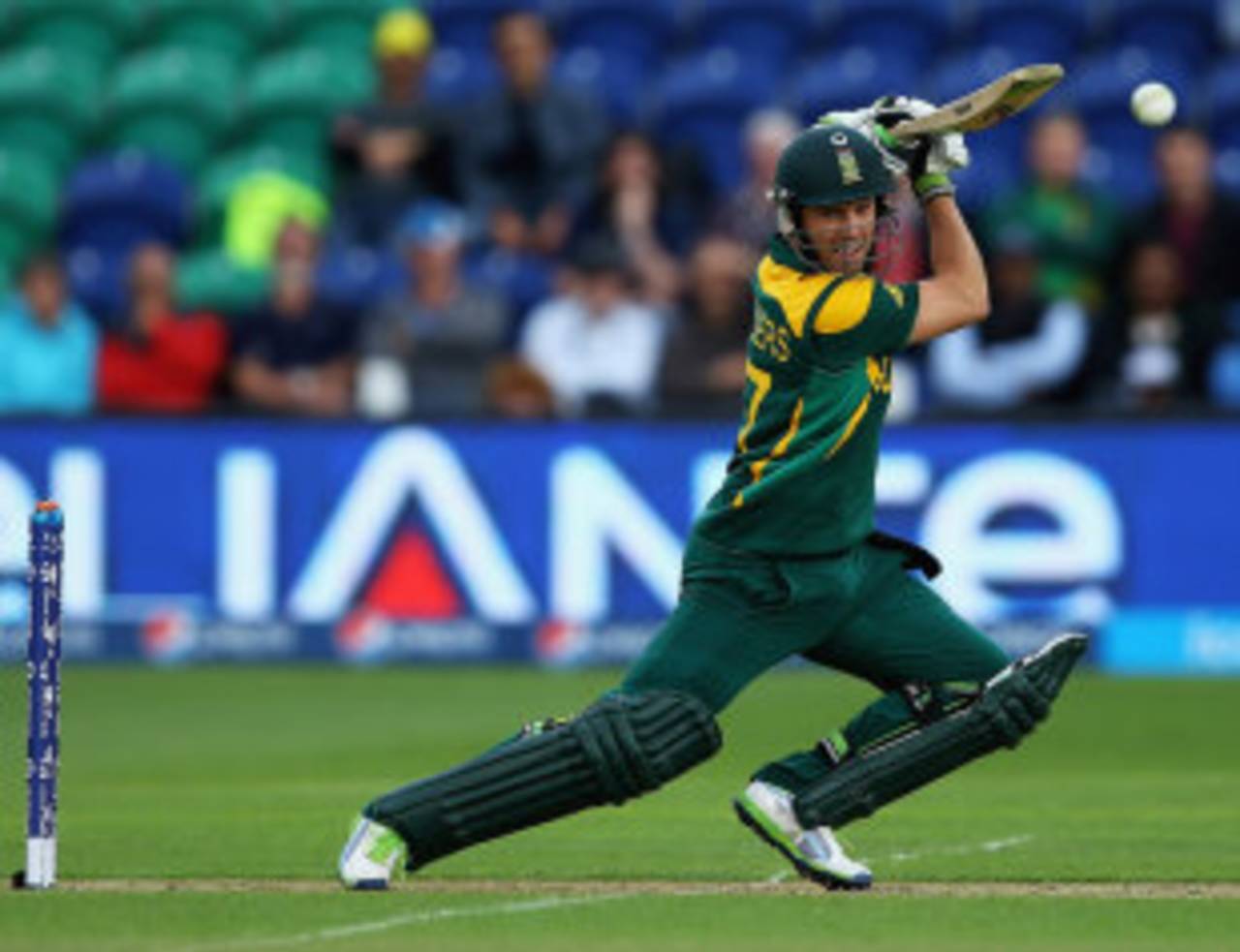South Africa in July is not a time for rebirth. The country is caught in winter's grip - wind and rain sweep over Cape Town; weak, watery sunshine tries to warm things up elsewhere - and cricket will only be woken from its slumber when September ends.
By then the new age would have begun. Russell Domingo would have completed his first assignment as head coach and the ODI and Twenty20 squads would have had their umpteenth makeover of the last two years.
This one will be their defining redesign, or so we've been told, as they look to prioritise the 2014 World T20 and the 2015 World Cup. Domingo and captain
AB de Villiers have been asked to give as much attention to the limited-overs squads as has been lavished on the Test one to restore their previous consistency and rewrite their major-tournament record by securing silverware.
They have been told to start again, beginning with the five-match ODI and three-match T20 tour of Sri Lanka. "We're going to have to take a few steps back and do the basics bloody well," de Villiers said before the squad's departure from Johannesburg. "It's about us finding a rhythm as a team."
As things stand, South Africa's one-day squad are out of sync. Some days the bowlers beat their drums perfectly but the batsmen cannot join in, on others the opposite happens. Pressure still infects them like an incurable illness, as was evident at the Champions Trophy.
That tournament also revealed that the South Africa of old - who entered ICC events as favourites to win and regularly left with a reputation of being the best team not to - is a thing of the past. Last month they were far from the best team at the competition and got what they deserved as a result.
The helter-skelter pattern of results leading up to the tournament did not inspire much confidence and they have now realised the value of how they did things before. "Everyone is tired of the word consistency because we talk about it so much but we need to play consistently in this series," de Villiers said.
Removing uncertainty from their game will start with de Villiers. The captain has wavered as much as the game plans, from his decision on whether he will keep wicket full-time to his position in the batting order. Now he seems to have been forced on to stable ground.
He will keep wicket, despite the presence of Quinton de Kock in the squad, and he will bat No. 4. "We played around with it because of particular circumstances but I think we'll be more consistent from now," he said.
De Villiers also believes Domingo will enforce regularity throughout the shorter-format squads. The fluid state they existed in under Gary Kirsten was partly a result of a search for combinations and Domingo has promised to end the experimentation. Instead he will take what his predecessor found and polish it.
Implicitly, Domingo has given an assurance he will not chop and change as much in order to give a group of players a sustained run and a chance to become accustomed to playing at the highest level. "Russell communicates very well and he will make sure everyone understands their role really well," de Villiers said. That means an end to the floating batting line-up, perhaps an end to the sometimes desperate-looking measures - like promoting Colin Ingram to opening the batting - and an end to de Villiers' constant changing of mind.
"I've learnt a few lessons as captain and I am really looking forward to showing that on this trip," de Villiers said. He understands the burden he has to shoulder better than he did in the past; de Villiers is now ready to settle in as captain, wicketkeeper and No. 4 batsman, and has enough experience in all three to be uncertain any longer.
His leadership emerged as one of the positives of the Champions Trophy, with him seeming more assured when directing proceedings in the field. He also identified the bowling as encouraging in the competition. "We were without Morne Morkel and Dale Steyn, and people said that was our weakness but the way the youngsters stepped up was impressive."
Morkel is back in the squad but Steyn continues to recover from the niggles he picked up in England, so it will be up to the bench strength to put their hands up again. So too the batsmen, who de Villiers expects much more from: "I am waiting for a few guys to take ownership of positions in the top order."
South Africa's implosion in the semi-final of the Champions Trophy, and his own careless swipe, is one of de Villiers' worst memories but, as they have done before, the ODI squad have to move on from the hurt. De Villiers believes they can start in Sri Lanka as they address their weaknesses to begin a new era.
"In that last Champions Trophy game against England, I can think of more than 10 things that we got wrong," he said. "In the big moments, we've got to play better."
A three-week tour of Sri Lanka, taking place in the shadow of the Ashes, will not present many big moments that anyone will take much notice of or remember. But it could be the relative obscurity of this engagement that will allow South Africa time away from the glare to work on their game.
The same applies to there being no Tests on the itinerary. The schedule is not South Africa's doing but it could be to their advantage because they will have a window to focus entirely on shorter formats. If the Champions Trophy is a measuring stick, that is exactly what they need right now.
Firdose Moonda is ESPNcricinfo's South Africa correspondent
